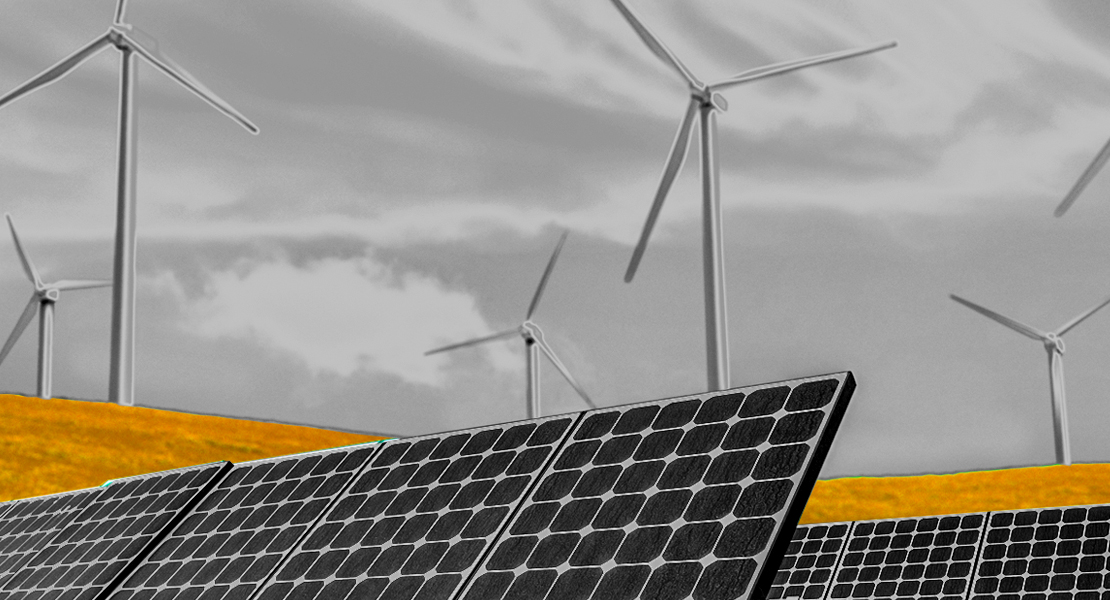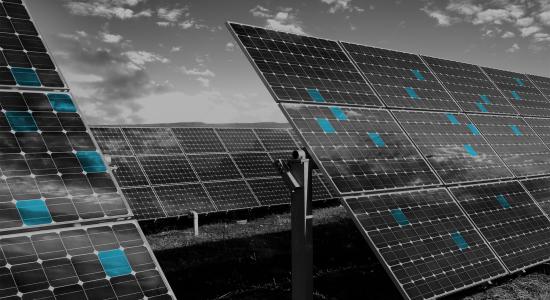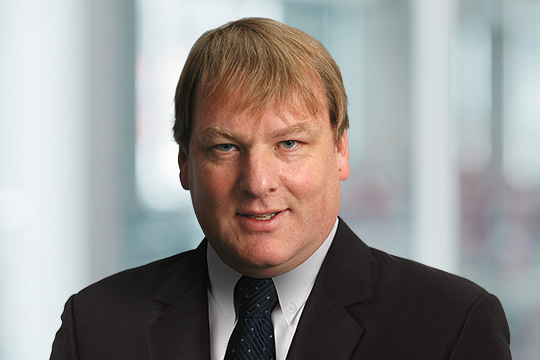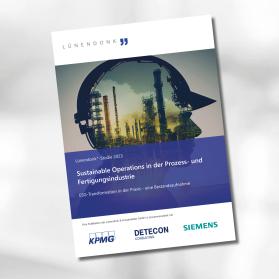Ignacio Campino is former Officer for Sustainability and Climate Protection for Deutsche Telekom’s Management Board, and former member of the DESERTEC Foundation Board of Directors. In this interview with Detecon, he reports on his experiences with the concept of sustainability and gives his assessment of future prospects, opportunities, and challenges for climate-neutral and renewable energy sources as they relate to green IT.
Detecon: Here at Detecon, we see from our clients that the topic of the CO2 balance is steadily gaining in importance because the use of renewable energy sources currently plays an important role. One of DESERTEC’s goals is to transport electricity from photovoltaic or solar thermal power plants in the Sahara to Europe and Germany. How do you assess the prospects for this goal, and what opportunities do you see?
Ignacio Campino: Yes, this alternative is of course still possible, but I do not believe that the political conditions and the will to carry it through can be found at this time. I do not expect electricity to be supplied exclusively by wind, solar thermal, or PV facilities in the near future, regardless of where the electricity comes from. While this is technically possible, the political standpoints and constellations will not allow it to happen, although it would be particularly important for Germany and many other countries. About 10 or 15 years ago, when the subject was constantly appearing in the press, it also had broad public acceptance. Moreover, if we had had massive funding for renewables in Germany for the local use of the energy, we would probably have been spared a number of political problems. Imports of gas and oil from politically unstable countries are unfortunately often tied to political side effects. This is precisely the point that has been particularly important for DESERTEC. We should look at the whole issue from the political perspective and not only from an economic and environmental point of view.
I am convinced that IT companies must make a massive commitment to climate protection and a reduction in CO2 emissions – and they should encourage politicians, both nationally and internationally, to do more for climate protection. There are too many representatives in the political establishment who are considerate of all kinds of things and too few who shout, “Let’s go!” This attitude, characterized by indecisiveness, is in my opinion absolutely wrong. Ultimately, business models based on CO2 emissions do not have a future. Why should the companies that advocate climate protection risk their future for those that neglect climate protection? I would call this situation almost absurd. However, those companies that stake out a loud and clear position for climate protection will benefit from taking this stand in the future.
For its part, Deutsche Telekom has been a pioneer in climate protection. Since 1995, it has been advocating decisive action for climate protection, nationally and internationally, with specific targets, measures, and timelines.
In many cases, the technologies are available now. Would you say that people’s attitude toward the subject presents a certain challenge? Thinking long-term and actively searching for alternatives?
I think people definitely recognize the problem – the real stumbling block is the politicians and the political establishment. We must strike out in a different direction in our regulatory policies. Telling people to drive smaller cars or to install a solar system, for example, is all well and good, but politicians must not place the burden squarely on the shoulders of citizens. In the past, politicians have never gone beyond making bold announcements. Everyone must take action to protect the climate, but politicians must set a clear route with ambitious goals, and they must also do so through legislation. I see numerous companies that want to do more for climate protection, but it is simply too expensive at the moment and would even reduce their competitiveness. There is no choice but to improve external conditions. But it is precisely at the political level that disagreement prevails, and the blockaders gain the upper hand. In other words, it is not the citizens who have the wrong attitude towards the subject; the political establishment has a responsibility here. In this respect, my 30 years of experience with climate protection in Germany and on the international stage have caused me to become significantly more radical, I have to admit, as one is repeatedly confronted with obstacles being put in one’s way at every turn.
So you would say that what has transpired in the last three decades has fallen short of your hopes?
Quite a bit of progress has been made, and we must certainly not ignore that. But it is important to look at the magnitude of the challenges and compare it with our performance as a society. A critical look at the situation reveals that the gap between challenge and performance has grown wider from year to year. There are plenty of fantastic positive examples: entire institutes and departments are now dealing with the issue, and we can save time and money because we travel less thanks to the plethora of online services. During the COVID-19 crisis, almost all flights have been cancelled and replaced with video conferences. I would also say that we can continue to use these technologies in the future. But you often hear the opinion that there are so many discussions of sensitive topics, especially in business and politics, that must not be overheard, which is why flights and business trips are indispensable. This raises the question of why companies that offer online services such as video conferences are not able to make them secure from eavesdropping. There is still a lot of work to be done in this area.
Feasible technical solutions must be available, of course. But would you say that, especially when it comes to switching to new technologies and renewable energies, many people still have fears that must be allayed before the transformation can be accelerated?
No, I don’t believe that. The fears are gone. They have been replaced by the new fears created by COVID-19. Everyone is withdrawing from social situations and avoiding contact, and this reluctance has wiped away the fear of new technologies – whether intended or not. A few days ago, I took part in a members’ assembly in which significantly more members were present online than during an in-person meeting the year before – a clear advantage.
We would like to return to the topic of renewable energy sources. Even today, attitudes towards the subject remain conservative in Germany. What possibilities do you see for effectively increasing the use of renewable energy sources?
We definitely need a legal framework as well as support programs and education for this. In other countries, new buildings are required from the outset to be equipped with systems for the use of solar energy in power generation and hot water supply. Legal requirements to reduce the engine power of cars would also be an important contribution, as would free public transport. The continuation of PV subsidization is another measure that can make an important contribution to reducing CO2 emissions. At present, politicians tend to protect the interests of companies that continue to cling to conventional business models, even though people want change. Electric vehicles, for example, are being subsidized, but the charging infrastructure for them is inadequate at this time. So funding is announced, but there is a lack of effective implementation.
There is also the problem here that the current energy mix for electric vehicles in Germany is no cleaner than a diesel vehicle. What changes are necessary here?
We need a very clear statement from politicians: More climate protection! The right signposts must be set. Of course, this cannot be achieved overnight. Companies must increase the pressure, and others must feel more pressure. When we look at electromobility, we are comparing a very mature technology that is over 100 years old – the internal combustion engine – with a technology that is just emerging. The learning curve in the development of electric vehicles has only just begun.
When we talk about change, we should refer to the Sustainable Development Goals (SDGs). These are the 17 sustainability goals of the United Nations that the General Assembly adopted by unanimous vote in September 2015. These goals track the transformation of our current society into a sustainable one. They take into account economic, social, and ecological aspects. The international community has set itself the target of achieving these goals by 2030. The advantage of examining our current challenges along the lines of the 17 SDGs is above all the encouragement to take a holistic approach.
The COVID-19 crisis has uncovered major weaknesses in many areas of our business model. There are now fantastic opportunities to set the right course leading to progress in climate protection and sustainable development.
What arguments could persuade the IT industry to use more energy from renewable sources, and how could greater changes with regard to costs be made?
Electricity is vital for the IT industry. Even when new and more efficient technologies are introduced in the future, electricity consumption will increase. This means that there must be a strong commitment to the procurement of electricity from renewable sources. IT companies should demand more clean electricity from electricity providers and take a stand in support of renewables in the political debate.
I see the increasing use of clean electricity as a means of securing a company’s future rather than of simply burnishing its image.
New services and the rapid transport of large data packets will require more energy. The aim is to dematerialize activities. What is achieved today with the consumption of materials can be done virtually in the future. Examples are the previously mentioned video conferences in lieu of travel. However, digitalization will also continue to advance in industry and present the IT sector with new challenges.
Thank you for this insightful discussion, Mr. Campino!
_____________________________________
Ignacio Campino served as Officer for Sustainability and Climate Protection on behalf of Deutsche Telekom’s Management Board until 2012. He subsequently served on the Board of the DESERTEC Foundation, an institute that seeks to highlight the potential of the desert as an energy location. He is also chairman of the Initiative for the Promotion of Business Competence in the sense of Education for Sustainable Development (BiWiNa) in Bonn and a member of the International Association for Sustainable Aviation (IASA), an initiative to promote “Power-to-X” with the aim of making long-haul flights carbon-neutral. Ignacio Campino is also committed to the issue of sustainability in his personal life and works together with other citizens of his community to make the town more climate-neutral.








